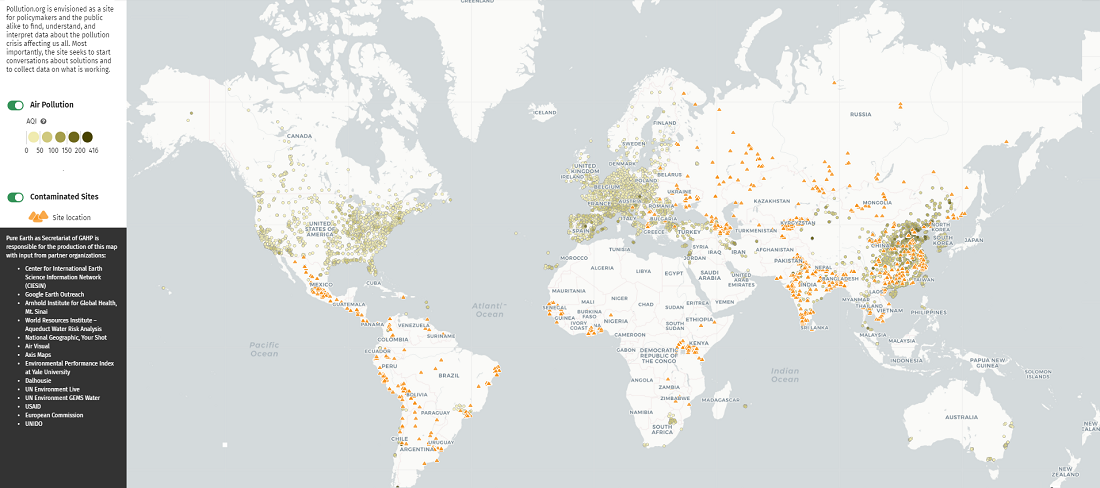Global Pollution Observatory: Wired
Diseases caused by pollution kill more than AIDS, malaria and tuberculosis combined. Known pollutants reduce individual intelligence and contribute to $5 trillion annually in productivity losses and healthcare, explains Zak Jason for Wired. Few choose or want to live near sources of pollution that foul air, waterways and land for homes and food, but avoiding toxins can be difficult because more than 140,000 chemicals and pesticides remain largely untested, notes a report from the Lancet Commission on Pollution and Health. The report underscores how reducing pollution makes economic sense and does not harm economies. The Global Observatory on Pollution and Health – a partnership of the UN Environment program, Boston College and Harvard School of Public Health – gathers data and makes country-specific recommendations. Pollution’s dangers are well documented. Satellite imaging and other technologies have advanced our ability to monitor pollution, and researchers can analyze a set of field data in a few hours, a task that would have once taken months. – YaleGlobal
Global Pollution Observatory: Wired
Pollution results in $5 trillion of annual costs – and a global observatory analyzes and targets pollution with country-specific recommendations
Monday, July 8, 2019
Read the article about the Global Observatory on Pollution and Health from Wired.
Read the report from The Lancet Commission on Pollution and Health, issued in 2017, co-led by Philip Landrigan, a pediatrician and epidemiologist who co-led the commission.
Mapping Pollution - Pollution.org

Targeting pollution: The Global Observatory based at Boston College serves as an international clearinghouse for data on pollution and heatlh, and the Global Allinace on Health and Pollution maps the data on Pollution.org (Sources: Global Alliance on Health and Pollution, Pollution.org, Basemap © CARTO)
Wired
© 2018 Condé Nast. All rights reserved.